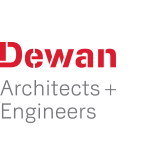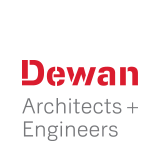Brand View: Ammar Al Assam, CEO at Dewan Architects and Engineers says that sustainability has never been a more pressing issue across all segments of industry.
Why is sustainability becoming more of an issue globally?
We have been unremittingly harming our environment and the earth since the industrial revolution and this has been accelerating exponentially. Pollution levels, global warming, plastics in the ocean, environmental effects on living species, and many other factors are some of the very alarming signs of how we are affecting our planet.
Construction activity in general has huge impact, be it from construction machinery, material waste, or shipping of materials to site. Then, when in use, buildings are responsible for a significant proportion of all our carbon emissions. Poorly designed and constructed buildings use more energy, increase the demand on energy production and contribute to global warming.
With all the visible signs of damage to our planet, there is now more awareness and social activity to control or reduce this damage. With awareness comes action, and sustainability is a result of people’s/government’s/activist’s focus on reducing carbon emissions and the negative effect of construction and buildings on the environment.
Why must businesses lead in implementing sustainable working practices?
Change only happens when people are aware, interested, and act on their concerns. Businesses are all about people and harnessing the power of people to make changes. With that in mind, businesses need to develop a culture of environmental awareness and this has to permeate all echelons of the business and become a way of life and normal operating procedures.
What must the C-Suite do to address sustainability in the workplace?
People follow leadership and leaders need to set an example. If we show that we personally care and implement procedures that enforce environmentally sustainable work practices, then others in the organisation will follow. This can take many shapes, be it CSR programs, sustainably manuals, awareness campaigns, or just your daily corporate processes and governance, but it must be a top-down approach with support from key sustainability champions within the workforce that support, push-through, monitor and encourage the process.
How is Dewan putting sustainability into practice?
While the negative effects of our industry are evident and visible, sustainability awareness is not new. Good design historically has always responded to the environment, be it through passive systems like building orientation, design that caters to wind flows and sun paths, and through use of locally sourced materials.
As the construction sector has matured, and infrastructure and transportation has developed, buildings have also become more complex “beings” which in many instances has increased the negative impact on the environment.
In the last two decades, people have become more vocal about this critical issue and the term “sustainability” was coined. A whole new industry has grown which aims to develop construction methods, building materials, regulatory checks-and-balances, and certification processes, that is built around (excuse the pun) how we as industry professionals can design, build, and operate buildings that are more sensitive to the environment and to lessen the negative impact of the construction process.
Coined by American architect Louis Sullivan, “Form follows function” is a principle associated with 20th-century modernist architecture and industrial design which says that the shape of a building or object should primarily relate to its intended function or purpose.
From a good-practice design point of view, Dewan has always been a firm that has sustainability as one of its core design guidelines along with the principals of form and function. However, as the sustainability industry has grown, Dewan has also grown and diligently followed the movement to design better buildings and to design buildings that perform, function, and operate in a more environmentally sensitive manner.
At Dewan, this has taken the form of having most of our architects and engineers be certified in LEED and Estidama, and through continuous sustainability awareness campaigns, CSR initiatives in the firm and between employee action groups, and education through lectures and conferences.
Sustainability must be a driving force in the future of our industry, and we must in any manner, big or small, corporate or personal, continue to contribute in any way we can to lessen the negative impact on the environment.
Why is it important for the architecture and construction industry to lead in this field?
It is very simple. Our industry is a big contributor to environmental damage and building projects begin at the drawing board with architects. If we design better, educate our clients and contractors on the best-practices to design buildings that minimises the negative impact on the environment, we will win!
According to new research by construction blog Bimhow, the construction sector contributes to 23% of air pollution, 50% of the climatic change, 40% of drinking water pollution, and 50% of landfill wastes. In separate research by the U.S. Green Building Council (USGBC), the construction industry accounts for 40% of worldwide energy usage, with estimations that by 2030 emissions from commercial buildings will grow by 1.8%.
Sustainable practices can be applied across every industry – how does Dewan influence or assist its supply chain to be more sustainable?
Corporate governance. Employing corporate policies processes in the workplace (eg: recycling, paperless office) and sustainable design ethos in the workplace, all contribute to how we work together with our peers and partners, and ultimately how we construct and affect everyone in the life-cycle of the process.
The business is expanding into South-East Asia; is sustainability part of the agenda there also?
At Dewan, sustainability is not driven by location or where we operate, and we take our corporate commitment to sustainability across all our office and markets we operate in extremely seriously. We have one planet and our offices and projects whether Asia, Africa, Europe, or the Middle East, operate in the same manner, but of course taking locality and regional differences into the way we design for sustainability.


